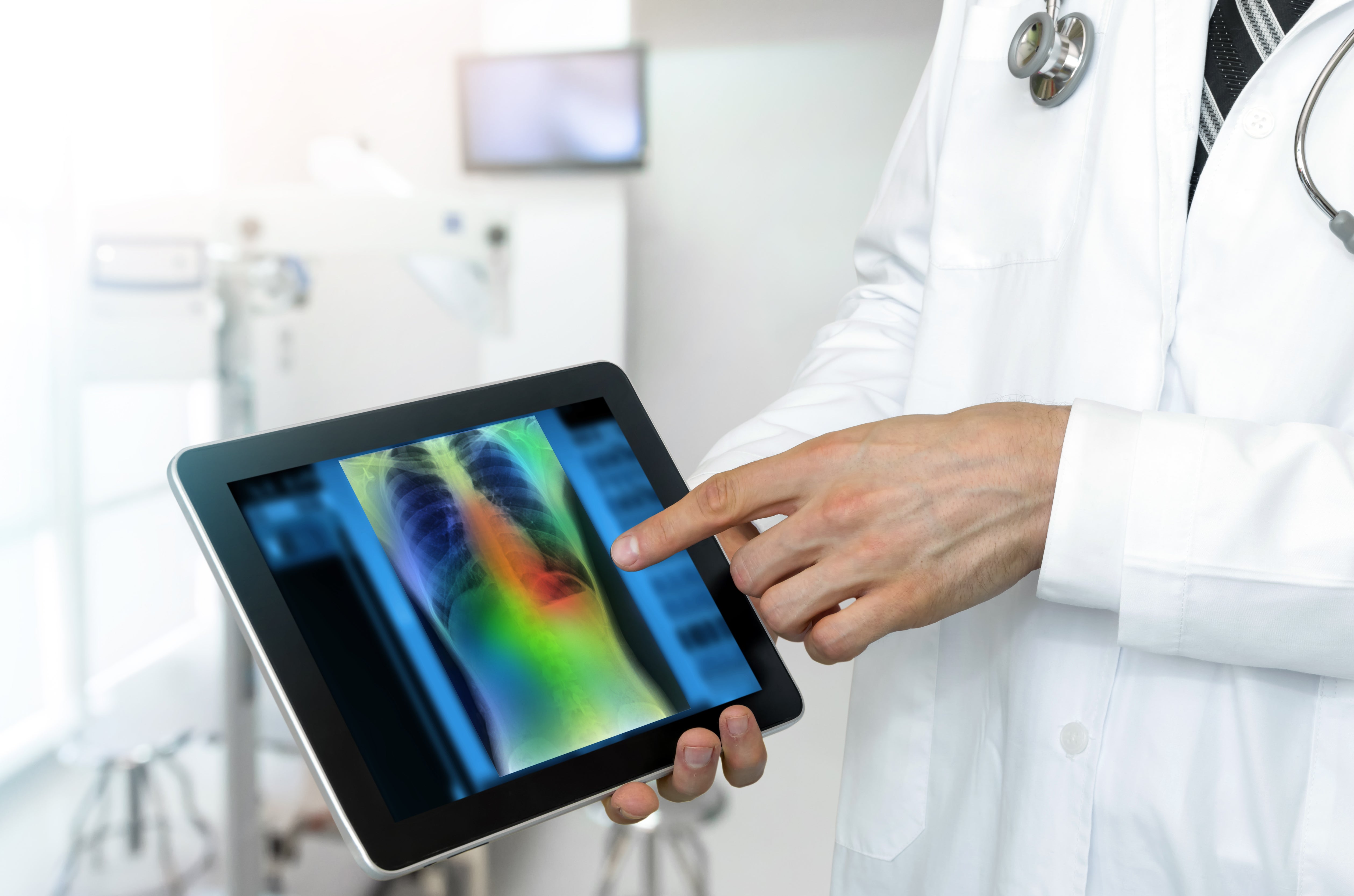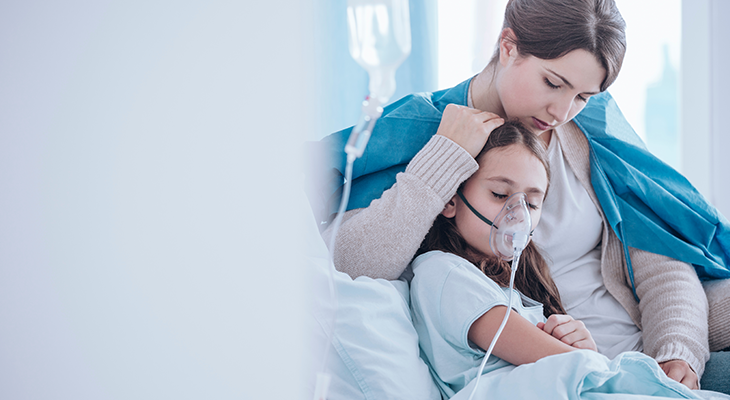Pneumonia

Pneumonia is an inflammation of the lung. It can occur with various microorganism, such as bacteria, viruses, fungi. It is more common among immuncompromized patients, especially in children, the elderly over 65 years of age, those who have a chronic disease (kidney, diabetes, heart or lung disease). While the deaths from infectious diseases are gradually decreasing due to the widespread use of antibiotics and effective immunization policies, pneumonia is still the high cause of death in the UK and the USA. The mortality rate in outpatients is 1-5%, the rate is 12% in the cases treated in hospital, and it reaches 40% in patients requiring intensive care support.
What are the symptoms of pneumonia?
The signs and symptoms of pneumonia range from mild to severe, depending on factors such as the type of microorganism, age and overall health of the patient. Mild signs and symptoms are often similar to cold or flu symptoms, but last longer.
Pneumonia signs and symptoms may include:
Chest pain when breathing or coughing
Changes in confusion or mental awareness (adults 65 and older)
Cough
Fatigue
Fever, sweating and chills
Body temperature lower than normal (in adults over 65 years old and in people with a weakened immune system)
Nausea, vomiting, or diarrhea;
Shortness of breath
When should a patient visit a doctor?
Visit your doctor if you have difficulty breathing, if you have chest pain, 39 C or higher fever or persistent cough.
High-risk people:
Adults over 65 years old,
Children under 2 years old with signs and symptoms,
People with an underlying health condition or weak immune system
People taking chemotherapy or taking drugs that suppress the immune system
How is pneumonia diagnosed?
Your doctor will make a physical exam, including questioning your medical history. If the doctor suspect you have pneumonia, your doctor may recommend the following tests:
Blood tests: Blood tests are used to confirm an infection and try to identify the type of organism that caused the infection. However, precise identification is not always possible.
Chest x-ray: It helps your doctor diagnose pneumonia and determine the extent and location of the infection.
Pulse Oximeter: It measures the oxygen level in your blood. Pneumonia can prevent your lungs from getting enough oxygen into your bloodstream.
Sputum test: After a deep cough, a sample of fluid (sputum) that you remove from your lungs is taken and analyzed to help determine the cause of the infection.
Your doctor may order additional tests if you are over 65 years old, in the hospital, or if you have serious symptoms or health conditions:
CT scan: If pneumonia is not cleared as quickly as you expect, your doctor may recommend chest CT scan to get a more detailed view of your lungs.
Pleural fluid culture: A needle is inserted between your ribs from the pleural area and a sample of fluid is taken and analyzed to determine the type of infection.
How is pneumonia treated?
Treatment of pneumonia involves healing the infection and preventing complications. People with community-acquired pneumonia can usually be treated at home with medication. Although the symptoms subside a few days or weeks, the feeling of fatigue can last a month or more.
Special treatments depend on the type and severity of your pneumonia, your age, and your overall health.
Options include;
Antibiotics: These drugs are used to treat bacterial pneumonia. It may take time to select the best antibiotic to identify and treat the types of bacteria that cause pneumonia.
Cough medicine: This medicine can be used to soothe your cough. It is a good idea not to completely eliminate your cough, as the cough helps the fluid in your lungs to relax and move. In addition, you should know that there are very few studies on whether over-the-counter cough medicines reduce cough caused by pneumonia. Antipyretics / painkillers: You can take it as needed for fever, general malaise and pain. These are aspirin, ibuprofen and acetaminophen etc.
You may need to be hospitalized if:
If you are over 65 years old,
If you are confused about time, people or places,
If your kidney function is impaired,
If your blood pressure is below 90/60 mm Hg,
Your breath is fast (30 breaths or more per minute)
If you need respiratory support,
If the fever is below or above normal
If your heart rate is below 50 per minute or over 100.
At home;
Get plenty of rest.
Do not go back to school or work until your fever returns to normal and the cough with sputum stops.
Even when you feel better, be careful not to overdo it. Since it can recur pneumonia, it’s better not to jump back into your routine until the pneumonia completely healed. If you are not sure, ask your doctor.
Don’t forget to drink water. Drink plenty of fluids to help sputum relax in your lungs, especially for water. The water is the best expectorant.
Do not smoke and do not be in smoking environments.
Use your medicine regularly.

